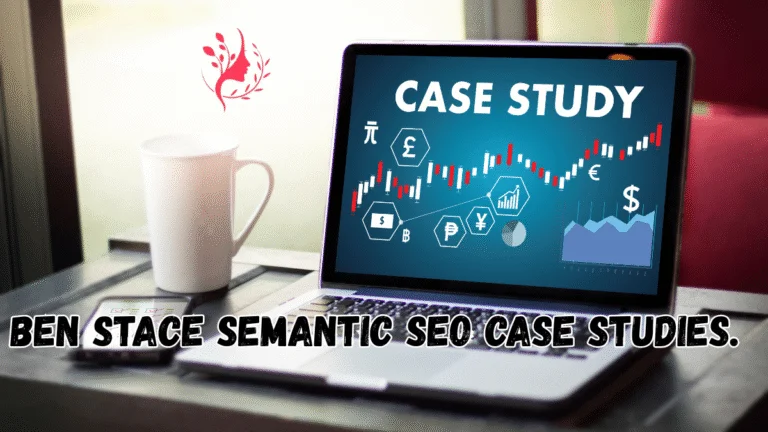Search engines no longer just match keywords. Instead, they try to understand context, intent, and meaning behind every query. This evolution is called semantic search, and it’s reshaping how websites rank on Google. Businesses that want to stay visible need strategies built for this new landscape. That’s where Ben Stace Semantic SEO Consultancy Services come in—helping brands align with modern algorithms and dominate search results.
In this guide, you’ll discover who Ben Stace is, what makes his consultancy services unique, and how semantic SEO can transform your online presence.
Who Is Ben Stace?
Ben Stace is a well-regarded SEO consultant specializing in semantic SEO and content optimization strategies. Over the years, he has worked with startups, established businesses, and enterprise-level brands, helping them build authority-driven SEO strategies that go beyond basic keyword stuffing.
Unlike traditional consultants, Ben focuses on how Google interprets meaning within your content. His consultancy services revolve around creating topic clusters, knowledge graph connections, and structured content frameworks that ensure long-term visibility.
Many clients seek his expertise because:
- He focuses on future-proof SEO strategies that withstand Google updates.
- His consultancy emphasizes content depth and topical authority rather than chasing quick wins.
- He delivers measurable results by combining data-driven analysis with semantic optimization techniques.
What Are Semantic SEO Consultancy Services?
To understand the value of Ben Stace Semantic SEO Consultancy Services, you need to first grasp what semantic SEO means.
Traditional SEO relied heavily on stuffing keywords into titles, meta descriptions, and content. While this worked years ago, Google’s algorithms have advanced dramatically. Now, search engines prioritize:
- Search intent – Why the user is searching.
- Content meaning – The broader context of your page.
- Entity relationships – How topics connect across the web.
- Structured data refers to schema markup that helps search engines understand the context better.
Semantic SEO consultancy services focus on teaching businesses to optimize for meaning, not just keywords. That means restructuring content, implementing schema, building topical maps, and ensuring that websites align with how Google’s knowledge graph processes information.
Key Features of Ben Stace Semantic SEO Consultancy Services
Content Optimization Through Semantic Analysis
Ben doesn’t just optimize for keywords—he analyzes how your content relates to broader topics. By using natural language processing tools and competitor analysis, he identifies semantic gaps and restructures your content for better visibility.
Knowledge Graph and Schema Integration
Google relies on structured data (schema) to understand entities. Ben integrates schema markup for articles, products, reviews, and organizations to make content more machine-readable. This increases the chance of appearing in rich snippets and knowledge panels.
Advanced Keyword Clustering and Topic Mapping
Rather than focusing on individual keywords, Ben arranges content into groups of related words. This approach helps to cover various types of search queries and builds authority on specific subjects.
On-Page SEO and Technical Enhancements
From improving heading structures to optimizing meta data and URL hierarchies, his consultancy ensures every page is built semantically for both readers and search engines.
Competitor and Market Analysis
He studies competitors not only by keywords but by semantic networks of topics, entities, and authority gaps, giving clients a strategic edge.
Benefits of Working With Ben Stace SEO Consultancy Services
When businesses adopt semantic SEO strategies through Ben’s consultancy, they experience:
- Higher search engine rankings through intent-based optimization.
- Broader organic traffic coverage thanks to topic clustering.
- Stronger brand authority in Google’s eyes.
- Greater resilience against algorithm updates.
Here’s a quick comparison table:
| Benefit | How It Helps Your Business |
| Higher Rankings | Aligns with Google’s intent-driven algorithms |
| Increased Traffic | Covers multiple long-tail and related search queries |
| Stronger Authority | Establishes content as a trusted topical resource |
| Future-Proof Strategy | Protects from sudden algorithm penalties |
Why Choose Ben Stace Semantic SEO Consultancy Services Over Others?
There are countless SEO consultants out there—but Ben Stace’s semantic approach stands out for several reasons:
- Custom-tailored strategies instead of cookie-cutter solutions.
- Emphasizing entities, meaning, and knowledge graphs rather than relying on old keyword tricks..
- Proven results across industries, from e-commerce to B2B services.
- A strong emphasis on long-term growth, not quick fixes.
Case Studies – Success with Ben Stace Semantic SEO Services
Case Study 1: E-Commerce Brand Growth
An online retailer struggling with declining traffic saw a 60% boost in organic visits within six months after adopting semantic topic clustering.
Case Study 2: B2B SaaS Company
By integrating structured data and schema markup, a SaaS brand improved click-through rates by 35% and gained visibility in rich results.
Case Study 3: Local Business SEO Domination
A regional service provider used semantic SEO techniques to dominate local search queries, outranking national competitors in their niche.
How to Get Started With Ben Stace SEO Consultancy
If you’re ready to invest in semantic SEO, the process is straightforward:
- Initial Consultation – Discuss your current challenges and goals.
- Website Audit – Identify semantic gaps and technical weaknesses.
- Strategy Development – Build a content and schema roadmap.
- Implementation – Optimize your website with semantic SEO best practices.
- Ongoing Monitoring – Track performance and adapt as algorithms evolve.
FAQs About Ben Stace Semantic SEO Consultancy Services
Q: What is semantic SEO?
A: It’s the process of optimizing content for meaning, context, and intent rather than just keywords.
Q: How is semantic SEO different from regular SEO?
A: Regular SEO focuses on keywords, while semantic SEO focuses on topics, entities, and user intent.
Q: When can I expect to see results?
A: Generally, most clients notice significant changes within a period of 3 to 6 months.
Q: Is semantic SEO suitable for small businesses?
A: Yes. In fact, it can help small businesses outrank larger competitors by focusing on niche authority.
Final Thoughts on Ben Stace Semantic SEO Consultancy Services
Search is no longer about who can stuff the most keywords. It’s about understanding meaning, intent, and context. That’s why Ben Stace Semantic SEO Consultancy Services are so powerful—they bridge the gap between what users search for and how search engines interpret content.
For businesses that want to stay competitive, semantic SEO isn’t optional—it’s essential. Partnering with a consultant like Ben Stace ensures your brand stays ahead of the curve, building authority, trust, and sustainable growth in the ever-changing world of search.















Leave a Reply